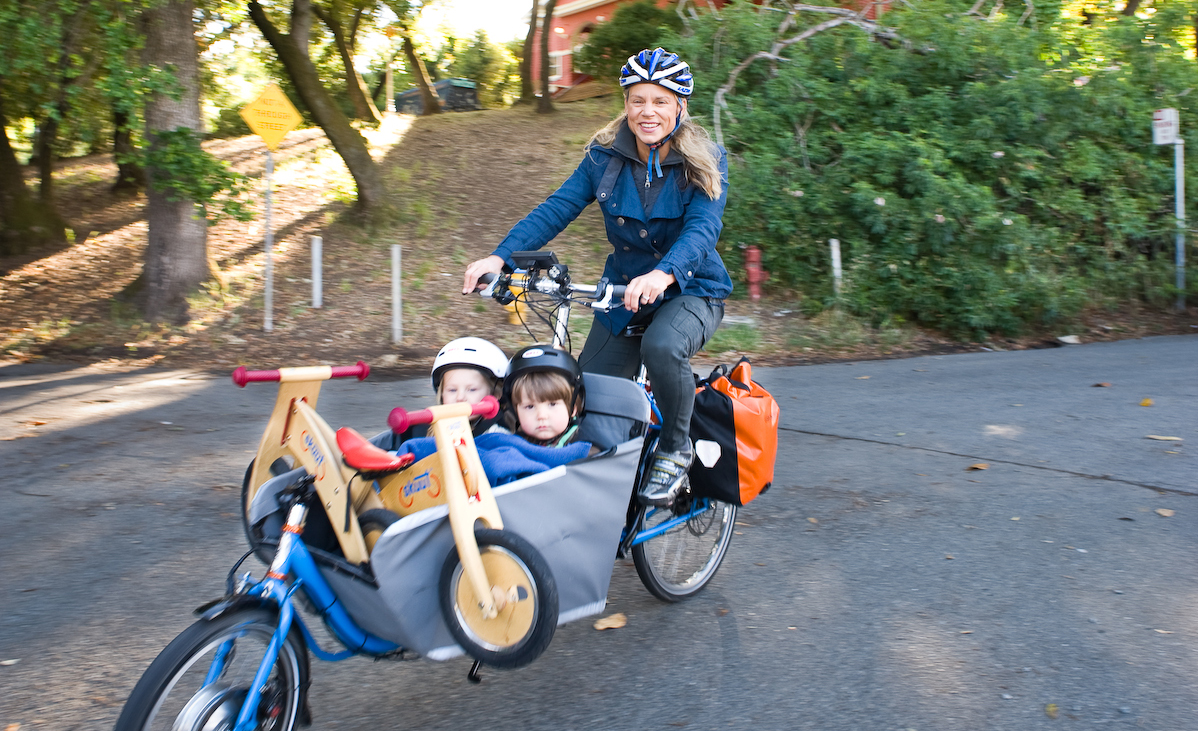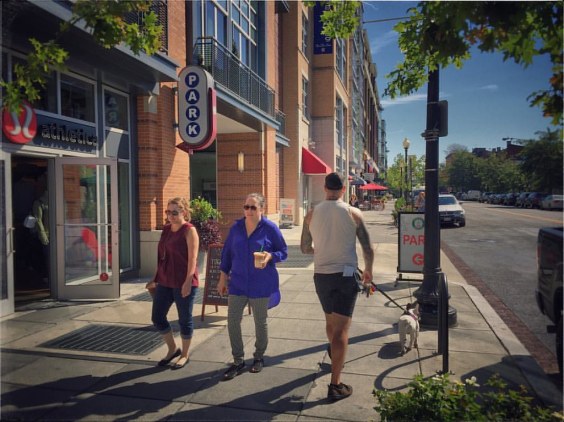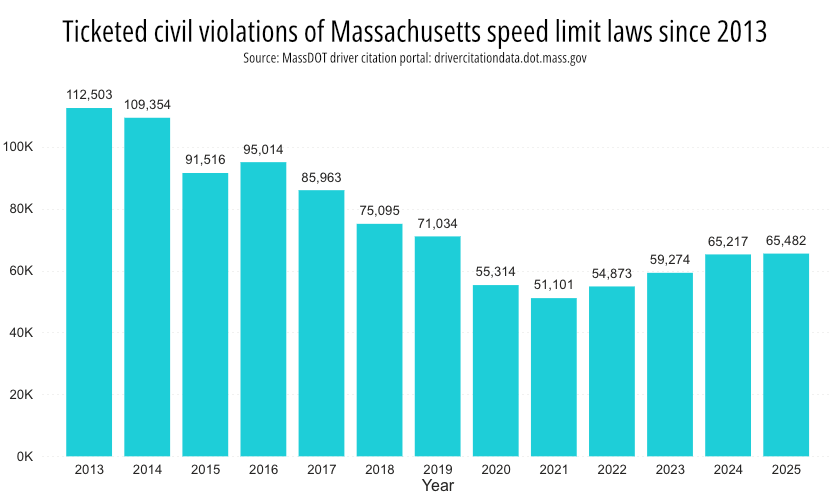This Sunday at the Brattle Theater, Green Cambridge will host a screening and discussion of "MOTHERLOAD," a new documentary about bicycling, feminism, and parenting from California filmmaker Liz Canning.
As a new mom living in the hills above Fairfax, California, Canning had been feeling stressed out and isolated until she bought a cargo bike that could take her and her twin children up and down the winding mountain road where she lives. Through that experience, she also discovered a thriving community of other cargo bike parents, many of whom contributed footage and funding for Canning to make her documentary.
Watch the trailer:
https://vimeo.com/339466072
"'MOTHERLOAD' not only describes how the earliest bicycles facilitated women’s fight for the vote and made the poor mobile, but also shows how 21st century bicycles are empowering mothers, families, communities and advocacy networks all over the world," writes Canning in her director's statement.
StreetsblogMASS talked with Canning about her film in a phone interview on Tuesday. The following is a transcript of our conversation, edited lightly for clarity and length.
StreetsblogMASS: Thanks for taking the time to talk about your film with us. Is this your first movie?
Liz Canning, Director of "MOTHERLOAD": I studied film, and I made some experimental and weird films and did the starving artist thing in San Francisco – back when you could do that in San Francisco. Then I started working as an editor on other people's films, and combining that with some work for corporate clients.
There’s a scene in the film where I’m kind of suffering because as the new mom of twins, I just did not have the brainpower to continue working on other people's documentaries. I love it, but it just takes everything... at a certain point, I decided I wanted to make my own film. My husband was getting promoted, so I stopped taking clients and started working on this.
StreetsblogMASS: How did you get the idea?
Canning: I think I had been looking for an idea for my own film for a while, and I kept on rejecting them. And then, in searching for a bike that I could use to carry my kids up the hill, that’s when we discovered the community. It wasn’t quite at the level where you can get advice now, but still it was remarkable, the number of people who wanted to chime in and help this happen for me.
And I was aware that a lot of people were shooting video and putting it online, and there was just so much energy behind this, I began to think, what if I got all these people involved in making a film about this.
And my husband knows me and he knows what cycling has meant to me. And he’s the one who said, ‘Yeah, that idea is one that you can not let go of.’
Are you aware of other documentary project that have taken this approach where you get a bunch of people to contribute footage and threads of the story?
Back when I was starting it, there was something called Life In A Day. It was a huge project, it took little bits of video from all over the world to sort of illustrate the human experience.
It wasn’t like they were trying to make a narrative out of it, which is what I was trying to do, which is different and challenging.
Did the contributions that you received change how the narrative structure of the film turned out, or influence the story that you ended up telling?
Absolutely. Because of the number of mothers (that contributed), and eventually the fact that people were sending me GoPro footage of mothers getting yelled at. That definitely influenced that chapter of the film, which I think is a really important one.
So yes: the film ended up having more of a focus on women. And all of us who ride bikes have had that experience, of wondering ‘why, why does this make other people in cars so angry? What is it about my being on this bike?’
Content warning: the following section discusses threatening verbal abuse that was depicted in the film.
That part of the movie was definitely the hardest for me to watch. Even though I’ve experienced that on a personal basis, as a man, I think it feels less threatening. But seeing that violent language directed at moms riding with their kids – one driver uses the n-word – it was very intense. How have audiences responded to that?
Dave Cohen, who’s in the film, he’s a big bike advocate, and he was like, ‘you’ve gotta cut all that stuff out. You’re gonna scare people away, that’s not what you want to do.’
And my feeling is, look Dave, those of us who are riding, we know this. Especially the women. We experience this even when we’re not on our bikes.
It’s part of life and there is no story without conflict; we’re going to deal with this. I have since created a censored version that bleeps out the c-word, the n-word and the f-words. And that’s specifically for families.
But I will say that in the screenings we’ve had in California so far, I haven’t gotten one complaint, and there are plenty of little kids there. I think, it’s not gratuitous, crazy over-the-top violence, it’s stuff that most of us have seen.
My kids have heard plenty of swear words, and being mimics, they’ve also said swear words. But the context of this language coming from drivers out on the street isn’t like it’s being said by someone who dropped something on their toe. It’s actively threatening.
As Paula points out (in the film), you’re in this multi-thousand-pound vehicle. And I’m on my bike. And you feel like you need to – it’s crazy.
What are your hopes for what people will take away from this when they see it?
I think that the people are already doing it get excited about activism around it, and the people who are curious about it or have been brought by a friend, they tend to – I mean, ever since I published the first trailer, people see it and they hear people talk about it and they say ‘I need to explore this.’ It’s been growing very quickly, despite all the resistance to bikes in this country. So that’s been exciting.
This is something that I think about when I’m riding my kids around on our bike, that it’s such a privilege to live in a place where this is possible, because most people do not live in places where this sort of lifestyle feels safe, or practical. Cambridge is a place where that lifestyle is possible, but very few families can afford to live in Cambridge.
What are your thoughts on making this kind of experience available to more parents?
In the film we go into the issue of how much the bikes cost, especially with the electric assist, and more and more shops will be offering financing, which is an obvious solution to that problem.
In terms of safety, I stayed away from tackling the whole infrastructure conversation because it’s so huge and there’s enough going on in the film, but I did touch on the idea that our thinking around safety and bikes is so emotional.
When you look at the statistics, it’s not that different from walking or driving. And so I wanted to talk about how it’s not as dangerous as people think, and the benefits and the health benefits outweigh the risks. The more people do it, the more drivers will have to acknowledge that these are real people, and they’re normal people.
You mentioned in the film that there are several online communities dedicated to cargo bikes and carrying kids around by bike. Have you noticed a spike in newcomers who have joined those groups since you released the film?
I’ve been to festivals with other directors who are making million-dollar-plus documentaries, and there’s this conversation about how do we translate these gorgeous documentaries into impact? Because it’s very easy to watch a beautiful documentary at home, and two weeks later, as moved as you were, you haven’t done anything about it.
Since the first trailer was published in 2011 I’ve been getting emails from people who say ‘I saw your trailer, we thought we’d give it a try, and now it’s changed our life.’
And it’s been happening over and over and over again. I think it’s because my film didn’t cost a million dollars and was made by the people who are doing this. They’re shooting – the first five minutes of the film, it’s moms shooting footage of themselves and their kids with their iPhones. It’s very accessible and you can place yourself in the narrative that much more easily, because it wasn’t shot by a film professional on some gorgeous camera.
How many people ending up giving you footage? What was it like trying to edit that together and weaving that into your own narrative?
I don’t have a number for you. A lot of people just sent me a couple photos or a short video clip, other people sent me a ton of stuff. I obviously didn’t use everybody’s stuff.
I always had the thought that the story of Ross Evans and Xtracycle, him going to Nicaragua and coming up with the long tail bike design and fighting against all this cultural resistance – that that would be the narrative spine of my story. And I worked on that for a long time.
And then we had a feedback screening and I showed a cut where my personal story started the film, and then I went off into the Xtracycle story. And the whole audience was pretty unanimous saying ‘we want more of your personal narrative.’
I remember one woman said, ‘we don’t really want to hear from any more white men about technology.’
And that was really hard because I had worked for so long on this other story, but on the other hand, it was kind of permission for me to go personal.
I really appreciated the focus on parents with young children. In the movie you discuss – and I don’t think this is something that gets talked about that much – how alienating it can be to be a parent, especially if you’re driving a lot. I’m wondering, in the process of making the movie but also being involved in these online communities of people who ride cargo bikes, whether the process of making this movie made parenting feel less lonely?
Definitely back in the beginning when they were little, and I was connecting to people online, and then being able to have a creative focus – that was a great comfort.
Ironically, making the film I spent an awful lot of time at my desk, a lot of time editing. And the last few years where I was like, I have to focus, to keep all the different threads and details of this 90-minute film in my head at once, I really had to kind of isolate myself. I wasn’t capable of doing that when the kids were really little.
But now it is such an incredible pleasure to hear from people and to be able to go to screenings and talk to people about the film. It’s really gratifying.
Event details:
"MOTHERLOAD" screening and discussion at the Brattle Theater
Sunday, Sept. 15th. Doors open at 11 a.m., screening begins at 11:30
Suggested donation for adults: $5






